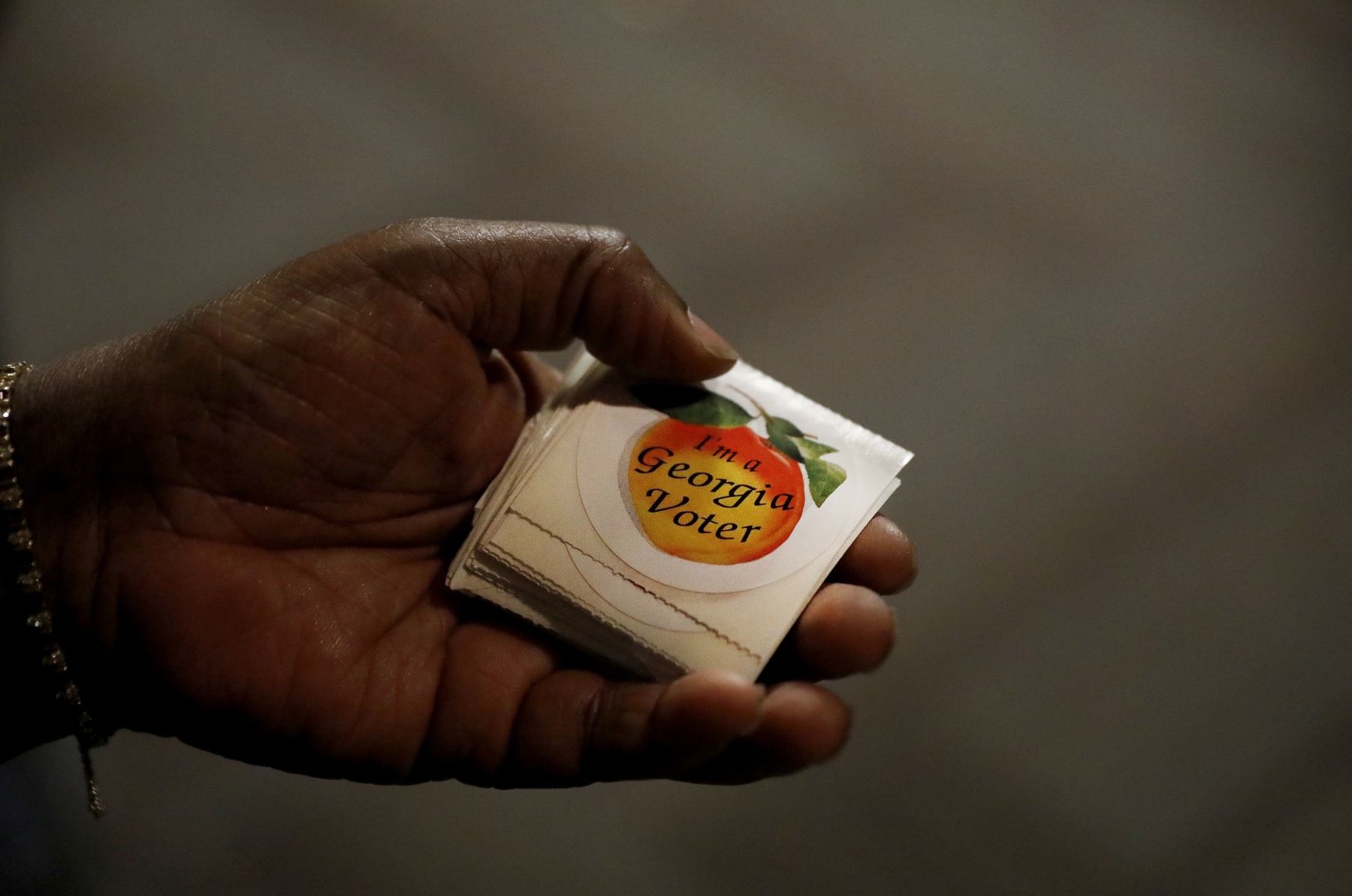Election officials in some Georgia counties waited too long to send out absentee ballots for the state’s Dec. 4 runoff election, so the deadline for returning those ballots should be extended, the Georgia Democratic Party argues in a new federal lawsuit.
Results of the general election were certified Nov. 17, but at least 65 of the state’s 159 counties didn’t send out absentee ballots for the runoff until this week, according to the lawsuit filed Thursday. That leaves some would-be absentee voters with only a week to get their ballots back to elections officials.
There are two statewide races on the runoff ballot — secretary of state and a seat on the Public Service Commission. Runoff elections in Georgia are triggered when no candidate wins more than 50 percent of the vote.
The lawsuit was filed against interim Secretary of State Robyn Crittenden in her official capacity as the state’s top elections official. A spokeswoman for her office didn’t respond to an email Friday seeking comment.
The state Democratic Party voter protection hotline received calls from voters seeking help getting absentee ballots they had applied for, the lawsuit says. It is the latest in a series of federal lawsuits filed before and after the general election raising concerns about how and whether the state counts certain ballots.
Generally, absentee ballots must be received by Election Day to be counted. The lawsuit asks a judge to order that absentee ballots postmarked by Dec. 4 and received by Dec. 7 be counted. It also asks that the secretary of state be prohibited from certifying the election results until she has confirmed that those ballots have been counted.
Georgia law says county officials have to send absentee ballots to eligible applicants for a runoff election “as soon as possible” after the results of the general election are certified, the lawsuit says.
Data from the secretary of state’s office shows that five counties began sending out absentee ballots on Nov. 19, the first business day after the general election results were certified, the lawsuit says. Several others sent out absentee ballots on Nov 20 or 21.
But 44 counties didn’t send out absentee ballots until Nov. 26, and 21 more waited until Nov. 27, the lawsuit says.
“This has and will result in arbitrary and disparate treatment of voters who seek to exercise their respective rights to vote via absentee mail-in ballot, based solely on their county of permanent residence,” the lawsuit says.
The number of people affected is not insignificant, the lawsuit says, noting that 283,839 people requested absentee ballots in the general election and at least 121,301 people had submitted applications for absentee ballots for the runoff election.
Overseas and military absentee ballots already are considered valid if they’re postmarked by Election Day and received within three days after that, so extending that deadline to other absentee ballots would not be overly burdensome for election officials who have until Dec. 10 to certify their election results, the lawsuit argues.
If that solution is not adopted, state Democratic Party chairman Dubose Porter said in a statement submitted with the lawsuit, some Georgia citizens “will lose their fundamental right to vote, because their ballots will have been sent to them too late to cast a ballot that will be counted.”









